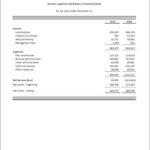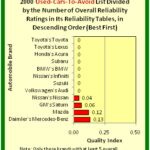
This is a very important step and unfortunately one that new franchisees often overlook in their first few years owning a business. Your taxes will vary depending on the entity type, location, and size of your franchise. Just like legal structure and ownership of the franchise, tax obligations and related considerations can be complicated.
Cloud-Based Software
- By using an advanced franchise accounting system like those listed below, you can ensure your business runs smoothly and efficiently no matter how many locations you have.
- For example, McDonald’s, the largest QSR chain, charges 4% of the gross sales from franchisees against the branding and intellectual property rights..
- Another important consideration in royalty fee structures is the frequency of payments.
- Without a dedicated account manager, you’re left to make sense of your accounting data without the context that can be offered by a financial pro.
- When it comes to accounting methods, franchises often use a mix of cash and accrual accounting.
Or, there may be an area development franchising arrangement, where the franchisee gets the right to develop a certain number of units within a specific territory, such as a county or a state. This entity then enters into a separate arrangement with the franchisor for each unit constructed within that territory. This activity involves managing the tax obligations of your business that includes preparing, filing, and paying taxes to the relevant authorities. When it comes to business tax, it includes federal, state, and local taxes like income tax, property tax, sales tax, and more. As a franchise owner, there are multiple aspects related to your franchise business and its accounting. Maintaining accurate records is crucial for navigating the world of franchise accounting with ease.
Conduct Regular Financial Analysis and Reporting
The franchising industry is handled by their consumer division, which includes both products and services. It’s possible that a franchisee may sell out to a replacement franchisee, which usually calls for the payment of a transfer fee to the franchisor. The outgoing franchisee can account for this fee as a cost of selling the business, so it’s deducted from the gross proceeds of the sale. This activity involves the preparation of business’ financial statements on a monthly, quarterly, or annual basis. Most business owners find themselves subject to ongoing quarterly estimated income taxes once they become profitable.
Accounting for Franchises
By following the right steps and proper accounting practices help franchise owners keep a regular check on their finances, determine the areas of growth, and make informed business decisions. If you run a franchise business and find it challenging to manage your finances and accounting, below are the tips that will help you to ensure the financial stability of your franchise business. A well-organized chart of accounts is essential for tracking your franchise’s financial activities. This involves categorizing all your revenue streams and expenses, which helps in identifying areas for improvement and making informed business decisions.
Convertible Bonds: Accounting and Tax Guide
Having all your brand partners use the same accounting vendor gives you greater visibility into your overall brand health and helps reinforce standardized procedures. In addition to their limited ability to scale, bookkeepers are also limited by which systems they can integrate with. Having your accounting connected to your POS and payroll systems is critical for seamless accounting.
Next, let’s assume that the franchisor is constructing facilities on behalf of its franchisees, with the franchisees paying advances as the work proceeds. In addition, the franchisor may charge the franchisee a fee to manage the construction process. The franchisor records these incoming payments in a development workers’ compensation basics fund liability account, which the construction billings are then charged against. Yet another approach is for the franchisee to be directly involved in the development process, with the oversight of the franchisor. This approach increases the risk of failure, since the location of the unit is untested.

In this article, the experts from the Franchise Practice at PBMares outline several best practices for franchise accounting. Having a partner you can trust with your financials gives you the time and confidence to manage the rest of your business with the peace of mind that your financials are in order. The right vendor can also be a consultant as you set up your chart of accounts, select and set up your POS, and help you set up an accounting system to optimize franchisee success. For entrepreneurs, franchising allows them a path to small business ownership without starting from scratch.
Consider hiring a professional accountant who comes with years of experience in franchise accounting and can help you manage finances of your franchise business. Franchise operations generate income through a variety of channels beyond the initial franchise fees and ongoing royalties. Franchise operations, with their unique business model, require specialized accounting and tax management strategies.
Adopting standardized franchisee accounting also allows for easier benchmarking with other franchisees and your peers. Commingling of business and personal finances almost always leads to trouble — especially for income tax filings. Commingling can “pierce the corporate veil” and cause significant issues for your business entity liability protection.
He’s curious, likes learning new things everyday and playing the guitar (although it’s a work in progress). In short, it’s not entirely necessary to hire an accountant, but it can end up saving you a lot of trouble, time, and potentially money in the long run. It has all the features you temporary account examples need to stay on top of your finances without breaking the bank. This includes detailed graphs and charts that make it easy to spot potential issues and immediately take corrective action. The integrated suite of tools makes it easy to manage multiple stores from one central platform.

The importance of a qualified franchise accountant cannot be overstated in navigating franchise accounting complexities. These professionals provide expert advice on franchise agreements, financial reporting, and accounting practices. Their specialized knowledge ensures accurate financial records, compliance with regulations, and informed financial decisions for franchise owners. By working with a qualified franchise accountant, owners can focus on running a successful business while leaving the intricacies of franchise accounting in capable hands. In summary, franchises have special accounting needs related to revenue reporting, royalty fee collection, marketing fee payments, and routine financial reporting. By addressing these specific requirements, franchise businesses can maintain accurate financial records, meet contractual obligations, and ensure the successful operation of their franchise locations.
The franchisor provides training, support, and a proven business model, while the franchisee is responsible for running the day-to-day operations of the business. One of the most critical aspects of running a successful franchise is managing the finances effectively. There are several types of franchise accounting models, each with its unique advantages and challenges. Before diving into the different models and best practices, it’s important to understand key terms and concepts related to franchise accounting. These include revenue recognition, cost of goods sold, inventory management, and financial reporting. In a franchise business, the franchisor usually sets the accounting standards and guidelines that the franchisee must follow.
For the franchisor, initial franchise fees are recognized as deferred revenue upon receipt and are recognized as revenue over time. Effective management of franchisee performance is vital for the overall success of the franchise system. Franchisors must establish clear performance metrics and regularly monitor franchisee operations to ensure consistency and quality across all locations.
Plus, its advanced reporting capabilities give franchise owners the insights they need to make informed decisions about their business. Point-of-Sale (POS) franchise accounting software is specifically designed for franchises that utilize a POS system. The main advantage of using cloud-based franchise accounting software is its convenience. An accounting software solution can help you streamline and automate the many processes of managing a franchise business. It requires keeping track of multiple locations, managing finances across each location, and dealing with different tax regulations. When a franchisee pays an initial franchise fee to the franchisor, the payment can be considered an intangible asset.
You can use accounting software to automate bookkeeping and financial management processes. Accurate records will also help you make informed decisions about future business strategies and investments. Franchising’s allure often stems from its “plug and play” model, providing a shortcut to entrepreneurial success under commercial solar arrays and macrs depreciation an established brand. In this exploration of franchise accounting, we delve into the intricacies of financial management that both franchisees and franchisors must grasp. Additionally, discover the tailored services offered by Guardian CPA Group to enhance and simplify the financial journey of franchise businesses.
